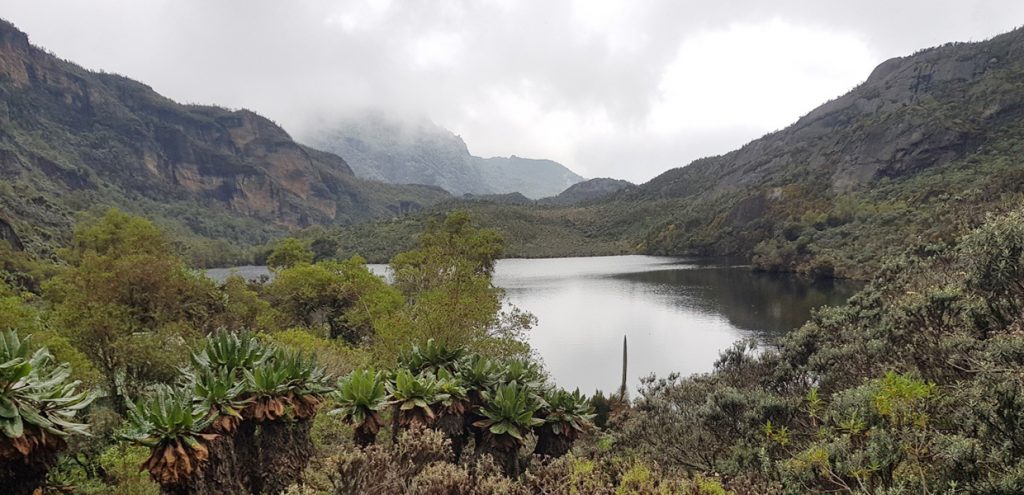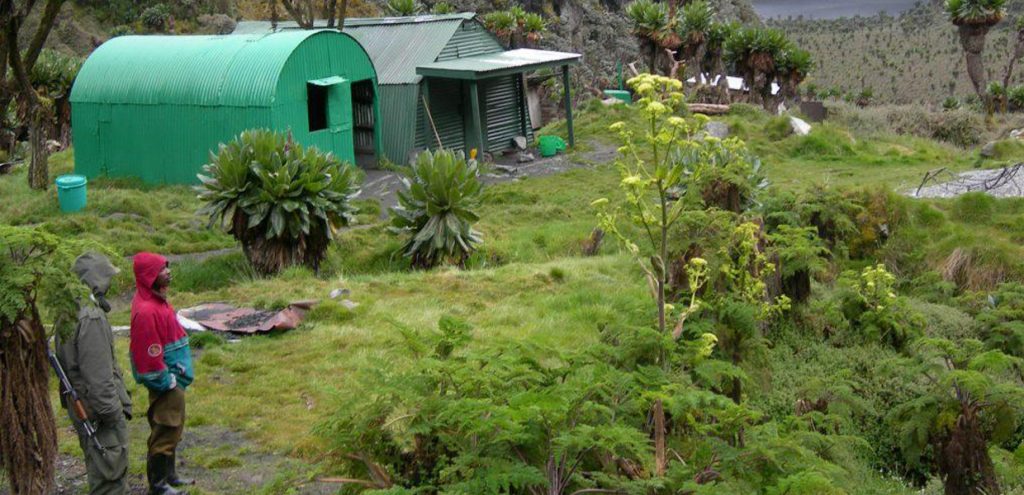Lake Bujuku is located in Kasese district, in Western Region of Uganda and it is found between the ranges Mountain Rwenzori, approximately 5 hour drive from Kampala, the capital. The beautiful Lake Bujuku lies at the head of the deep, glacier carved Bujuku valley that majestically settled between the famous mountains such as Mounts Stanley, Baker and Speke.

In the Nyamwamba valley, ascended by the Kilembe Trail, dams created by glacial moraine have created a string of eight delightful lakes including Lake Bujuku. Several rivers and streams originate from mountain Rwenzori, forming lifelines for flora and fauna in the flood plains and supporting local communities.
Hiking to Lake Bujuku
It takes about 3 days to reach on this amazing lake where the route fords the Bujuku river across the lower Bigo bog and then a steep climb follows to reach the upper Bigo Bog. This is where a boardwalk has been constructed to assist walkers. In clear weather, there are superb views of Mt. Stanley at the head of this cavernous, glacier-carved valley.
Above the bog, there is a long steady climb over glacial moraine, crisscrossing the river, then the trail reaches the lovely Lake Bujuku at the height of 3,962m above the sea level. The lake has a length of 1.37km.
This is the stage where the alpine savannah zone of little vegetation start from and not far from the lake where you can find Bujuku Camp. The camp has good facilities from cooking, sleeping to toilet facilities that consist of a single-room tin hut which is well placed for parties climbing to Mt. Speke.
Camping at Bujuku Hut

The camp offers a breathtaking sweeping view of Lake Bujuku and the surrounding peaks. On a clear day, Scott Elliot Pass, the Stanley Plateau and Mt. Baker can also be seen clearly. This camp also offers opportunities to spot the elusive duiker antelopes. The camp is a staging post for the trip to Elena Hut, and then to Margherita or to Mt. Speke. Climbers heading to Mt. Speke will head out of this camp to attempt the peak.
The dry season is the best season that gives you a clear view of Lake Bujuku in months of July, August and September, then December, January and February, so this is the best time for hiking Mountain Rwenzori. These months are generally the dry seasons in Uganda, which makes hiking friendly and easier for mountain climbing in Uganda. Even so, visiting and hiking Mountain Rwenzori can still be done all year around.
Other areas in Uganda where you can enjoy hiking include Mount Elgon in eastern part of Uganda, Mount Muhabura, Mount Sabinyo and Mount Gahinga in southwestern Uganda, and Mount Moroto in North eastern Uganda.
Mountain climbing can also be spiced up with wildlife and game drive experience in Queen Elizabeth National Park, Lake Mburo National Park and Murchison Falls National Park. Other forest parks like Kibale Forest National Park for chimpanzee trekking tours, Bwindi Impenetrable National Park and Mgahinga National Park, for gorilla trekking.
